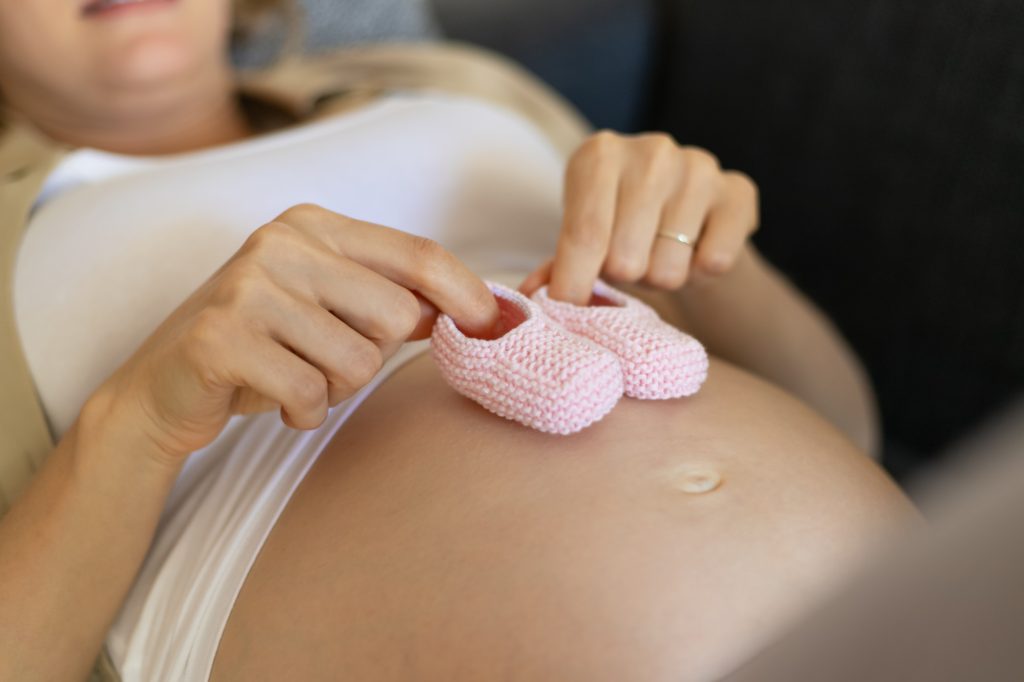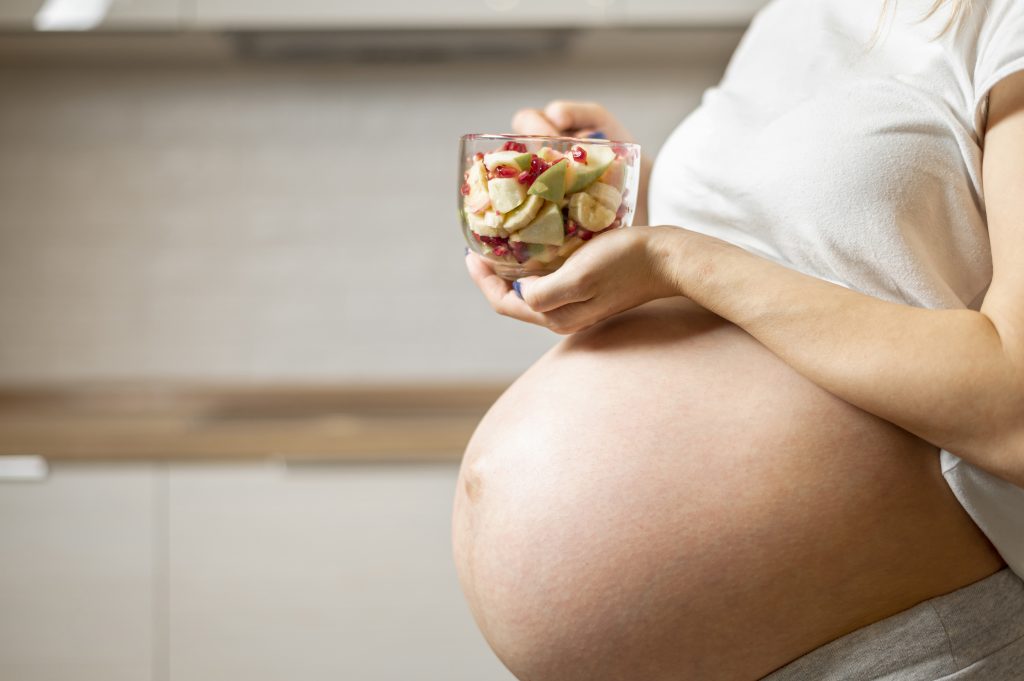Discover the effectiveness of acupuncture as a treatment for pregnancy-related back pain.
Is Acupuncture an Effective Treatment for Pregnancy-Related Back Pain?
Are you currently carrying a little bundle of joy? Congratulations! Pregnancy is an exciting and magical journey, but it can also come with its fair share of discomforts. One common complaint among expectant mothers is back pain. This pesky discomfort can put a damper on your joyous anticipation, causing you to search for relief. One alternative treatment that has gained popularity is acupuncture. But does it really work? Let’s delve into the world of acupuncture and its potential effectiveness in treating pregnancy-related back pain.

Understanding Pregnancy-Related Back Pain
No mama-to-be wants to deal with back pain while expecting. But unfortunately, it’s a common ailment that affects many women during pregnancy. As your body goes through significant changes to accommodate your growing baby, it puts extra strain on your back. Hormonal changes, weight gain, and the shifting of your center of gravity are to blame for this unwelcome discomfort.
During pregnancy, your body produces a hormone called relaxin, which helps to loosen the ligaments in your pelvis to prepare for childbirth. However, this hormone can also affect the ligaments and joints in your back, making them more prone to strain and injury. Additionally, as your baby grows, your uterus expands and pushes against your spine, causing further pressure and discomfort.
As your pregnancy progresses, the weight of your growing belly pulls your spine forward and causes the muscles in your back to work harder. This strain can lead to muscle spasms, stiffness, and pain. The added pressure on your lower back can also compress the nerves, resulting in radiating pain that may extend to your buttocks and legs.
Causes and Symptoms of Pregnancy-Related Back Pain
Understanding the causes and symptoms of pregnancy-related back pain is crucial in finding effective relief. The extra weight carried in your belly, combined with the hormonal changes and shifting center of gravity, can put a significant strain on your back muscles and ligaments.
Expectant mothers often experience pain in the lower back, but it can also radiate to the buttocks and legs. You may notice sharp or dull aches, a feeling of heaviness in your lower back, or difficulty standing or sitting for long periods. These symptoms can significantly impact your daily activities and overall well-being.
It’s important to note that every woman’s experience with pregnancy-related back pain is unique. Some may only experience mild discomfort, while others may struggle with severe pain that affects their quality of life. If you’re experiencing persistent or worsening symptoms, it’s essential to consult with your healthcare provider for a proper diagnosis and personalized treatment plan.
Traditional Treatments for Pregnancy-Related Back Pain
Before we dive into acupuncture, it’s important to touch on traditional treatments for pregnancy-related back pain. Many expectant mothers find relief through exercises, such as prenatal yoga and gentle stretching routines. These exercises help to strengthen the muscles in your back and abdomen, improving your posture and providing support to your spine.
In addition to exercises, heat therapy can also provide temporary relief. Taking warm baths or using heating pads on your back can help soothe the muscles and reduce pain and stiffness. However, it’s crucial to avoid excessive heat and ensure that the temperature is comfortable and safe for you and your baby.
In some cases, physical therapy or chiropractic care may be recommended. These treatments focus on improving your posture, strengthening your back muscles, and realigning your spine to reduce pain and discomfort. Physical therapists can also teach you proper body mechanics and techniques to minimize strain on your back during daily activities.
It’s important to consult with your healthcare provider before starting any new treatment or exercise regimen, especially during pregnancy. They can provide guidance and ensure that the chosen approach is safe and suitable for your specific needs.
The Basics of Acupuncture
Now that we have a good understanding of pregnancy-related back pain, let’s explore acupuncture and how it works. Originating in ancient China, acupuncture is a holistic practice that involves inserting thin needles into specific points on your body.
Acupuncture has been around for thousands of years and is based on the concept of Qi (pronounced “chee”), which is the vital energy that flows through your body. According to traditional Chinese medicine, when Qi becomes imbalanced or obstructed, health issues can arise. Acupuncture aims to restore the flow of Qi, promoting balance and harmony within the body.
The acupuncture points correspond to specific meridians, or pathways, through which Qi flows. By stimulating these points, practitioners believe that the body’s natural healing abilities are activated, leading to pain relief and overall well-being.
Acupuncture has a rich history that dates back over 2,500 years. It was first mentioned in ancient Chinese texts, such as the Huangdi Neijing (Yellow Emperor’s Inner Canon), which is considered one of the fundamental texts of traditional Chinese medicine. Over the centuries, acupuncture has evolved and adapted, incorporating new techniques and theories.
One of the key principles of acupuncture is the concept of Yin and Yang, which represent opposing forces that need to be in balance for optimal health. Yin is associated with darkness, coldness, and passivity, while Yang is associated with light, warmth, and activity. Acupuncture aims to restore the balance between Yin and Yang, promoting harmony within the body.
The Acupuncture Procedure: What to Expect
If you’re new to acupuncture, the procedure may seem a bit intimidating. Rest assured, it is a safe and relatively painless process. During a typical acupuncture session, you will lie comfortably on a treatment table while a licensed acupuncturist inserts thin needles into the predetermined acupuncture points.
Don’t worry; the needles are so fine that you’ll likely feel a slight pinch or tingle at most. The needles used in acupuncture are sterile and disposable, ensuring a hygienic and safe treatment. The acupuncturist will carefully select the acupuncture points based on your specific condition and needs.
Once the needles are inserted, you may experience a sensation of warmth, heaviness, or tingling around the acupuncture points. This is a normal part of the treatment process and indicates that the Qi is being stimulated. Some people find the sensation deeply relaxing, while others may feel energized or invigorated.
The needles are usually left in place for around 20-40 minutes, during which you can relax and unwind. Many acupuncture clinics provide a soothing environment with soft lighting and calming music to enhance the overall experience. Some practitioners may incorporate other techniques, such as cupping or moxibustion, to enhance the effectiveness of the treatment.
After the acupuncture session, you may feel a sense of calm and relaxation. Some people report immediate pain relief, while others may notice gradual improvements over time. The number of acupuncture sessions needed depends on the individual and the specific condition being treated.
It’s important to note that acupuncture is not a standalone treatment but is often used in conjunction with other therapies, such as herbal medicine, dietary changes, and lifestyle modifications. A qualified acupuncturist will take a comprehensive approach to your health and develop a personalized treatment plan tailored to your specific needs.
Acupuncture and Pregnancy-Related Back Pain
Now that we’re well-versed in acupuncture, let’s explore its potential in relieving pregnancy-related back pain specifically. Acupuncture is believed to work for back pain by stimulating the release of endorphins, which are natural painkillers produced by your body. Additionally, it’s thought to reduce inflammation and promote blood flow to the affected area, aiding in the healing process.
How Acupuncture Targets Back Pain
Acupuncture is a holistic treatment that aims to address the root cause of your back pain, rather than simply masking the symptoms. By targeting the specific meridians associated with back pain and promoting balance within your body, it may offer relief from pregnancy-related back pain.
Furthermore, some studies suggest that acupuncture can help alleviate muscle tension and improve mobility in the spine, reducing the discomfort caused by strained back muscles.
Safety Considerations for Pregnant Women
If you’re pregnant and considering acupuncture for your back pain, safety is undoubtedly a top concern. It’s essential to consult with your healthcare provider and find a licensed acupuncturist experienced in treating pregnant women. They will be able to assess your individual situation, discuss any potential risks, and guide you on the most suitable course of action.
Analyzing the Effectiveness of Acupuncture
Now for the million-dollar question: does acupuncture really work for pregnancy-related back pain? Let’s dig into the research and explore both the scientific evidence and real-life experiences.
Reviewing Scientific Research on Acupuncture and Back Pain
Several studies have investigated the effectiveness of acupuncture in treating back pain during pregnancy. While results are mixed, some research suggests that acupuncture can provide significant relief for expectant mothers. However, it’s important to note that more high-quality studies are needed to draw definitive conclusions.
One study published in the Journal of Pain Research found that acupuncture was effective in reducing both the intensity and frequency of back pain during pregnancy. Participants reported a decrease in pain levels and improved overall functioning after receiving acupuncture treatments.
Patient Testimonials and Experiences
In addition to scientific research, many pregnant women have turned to acupuncture and reported positive experiences. From reduced pain and improved sleep to increased relaxation and well-being, the testimonials paint a promising picture of acupuncture’s potential effectiveness.
It’s crucial to remember that individual experiences may vary, and what works for one person may not work for another. However, the growing number of positive anecdotes is reason enough to consider acupuncture as a potential option for pregnancy-related back pain relief.
Other Non-Traditional Treatments for Pregnancy-Related Back Pain
While acupuncture shows promise, it’s worth exploring other non-traditional treatments for pregnancy-related back pain to ensure you find the best approach for your individual needs.

Chiropractic Care and Pregnancy
Chiropractic care focuses on the alignment of the spine and nervous system. By gently adjusting your joints and spine, chiropractors aim to relieve pain and promote overall well-being. Many pregnant women find chiropractic adjustments helpful in alleviating back pain associated with pregnancy.
Yoga and Physical Therapy for Pregnancy-Related Back Pain
Prenatal yoga and physical therapy can also be beneficial for easing pregnancy-related back pain. These practices focus on strengthening your core muscles and improving your flexibility, ultimately providing support to your back.
Whether you choose acupuncture, chiropractic care, yoga, or physical therapy, it’s crucial to consult with your healthcare provider, listen to your body, and choose a treatment that aligns with your comfort level and preferences.
In conclusion, acupuncture is a potential treatment option for pregnancy-related back pain. Its holistic approach and focus on balancing your body’s energy may offer relief from discomfort. While scientific research is ongoing, patient testimonials and positive experiences support acupuncture’s effectiveness. Remember, every pregnancy journey is unique, so finding the right approach for you is key. Consult with your healthcare provider, explore different options, and embrace the path that brings you the most comfort and joy throughout this incredible chapter in your life.



